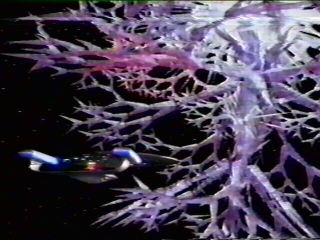There is no reason that all human existence should be constructed on some one or some small number of patterns. If a person possesses any tolerable amount of common sense and experience, his own mode of laying out his existence is the best, not because it is the best in itself, but because it is his own mode. Human beings are not like sheep; and even sheep are not undistinguishably alike.
---John Stuart Mill
Brian Foote: October 1997 Archives
Thus mathematics may be defined as the subject in which we never know what we are talking about, nor whether what we are saying is true.
--Bertrand Russell
An individual human existence should be like a river, small at first, narrowly confined within its banks, and rushing passionately past boulders and over waterfalls. Gradually the river grows wider, the banks recede, the waters flow more quietly, and in the end, without any visible break, they become merged in the sea, and painlessly lose their individual being. The man who, in his old age, can see his life in this way, will not suffer from the fear of death, since the things he cares for will continue... I should wish to die while still at work, knowing that others will carry on what I can no longer do, and content in the thought that what was possible has been done.
--Bertrand Russell
Oscar Wilde on Strong Type Checking
 Wilde, when, visiting America for the first time, was asked upon arriving at the New York Customs House if he had anything to declare, and is said to have replied:
I have nothing to declare except my genius
.
Wilde, when, visiting America for the first time, was asked upon arriving at the New York Customs House if he had anything to declare, and is said to have replied:
I have nothing to declare except my genius
.
-–Oscar Fingal O’Flahertie Wills Wilde (1854-1900)
Wilde, is, of course, one Ireland's most gifted minters of colorful epigrams...

The Stones' songs came spontaneously like an inspiration at a séance. The tunes arrived 'en masse' as if the Stones as songwriters were only a willing and open medium.
--Keith Richards, on Creativity, Rolling Stone, 5 May 1977, p. 51
Give away a thousand lines of source code to your competitor, and you may ruin your busininess. Give away a million lines, and you may ruin his...
--Thomas Jay Peckish II
On "components": Run-time instances, to me, are the correct analogues for physical "components."
--BF?
If this is the case, then shouldn't the call against prefab components be a call for prototype-based programming? Languages like Self where each instance is separately tailorable? Or, should this comparison between architecture and software make us suspicious of interdisciplinary comparisons in general?
--Somebody
Analogies, architectural or linguistic or otherwise, are helpful, but only up to a point. When used properly, they lend support and familiarity to our descriptions of our arcane, ephemeral coalitions and constellations of bits. If you push any of them too far, you can break them. It's easy to get sucked into the analogies, particularly since all we really have are puddles of ones and zeroes at the bottom. Yet, good analogies, and good names, make it possible to talk about what we build. A dataflow application built around reusable streaming components may remind us of the Pompidou Museum, as its form emerges from around those elements. As with a well-engineered locomotive, our assessment of its QWANness may revolve as much around how well it does its job, as the does around the aesthetics or craftsmanship of either the program that engenders it, or the process and objects that emerge when it is run.
For many kinds of programs, analogies like chefs following recipes, troops following orders, orchestras following scores, or troupes of actors following scripts all reflect the dynamic nature of the program/process relationship better that our building analogies. Indeed, Von Neumann's brother claims he got the idea for the stored-program computer from reading Bach's the Art of the Fugue. Might our cult embrace Paul Prudhome, Sun-Tzu, Bach, or the Bard as it has Alexander?
--BF

At OOPSLA '97, Gregor Kiczales et al. discussed, among other things, an idea he referred to as Aspect-Oriented Programming, or AOP. They employed a faux conversational format, which at times seemed forced and a little contrived. The work struck me as potentially interesting, but premature. At least the level of fanfare exhibited for something as preliminary as this seemed unwarranted. He spoke of the difficulty of remodularizing to control the emergent entity. This in, turn, prompted the following quip:
If we can't remodularize to control the emergent entity, then what can we do, repolarize the main deflector dish to emit a tachyon pulse?
--Thomas Jay Peckish II
